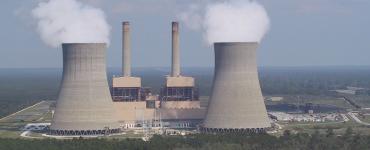
Florida is one of the top states relying too heavily on natural gas, according to a new study released this week from the Union of Concerned Scientists.
Florida uses natural gas for 62 percent of its in-state electricity generation, one of eight other states using natural gas for more than 50 percent of their in-state electricity.
The study notes there's been a transition from using coal to using natural gas in recent years. Using the right amount of natural gas can cut electric costs to consumers and reduce carbon pollution, but using too much natural gas can be a problem because consumers will have to pay off the costs of using too much natural gas in the future.
According to the group, natural gas prices are volatile because of several factors like its use in other sectors (such as industry) and supply shortages during periods of extreme weather.
Increasing reliance on natural gas to generate electricity means price spikes will hit consumers that much harder.
Using too much natural gas also increases carbon emissions, which contribute to global warming.
By 2017, Florida will have the third-highest electric capacity nationwide, falling behind Texas and California. Florida has already placed big bets on its natural gas capacity, with natural gas dominating 61 percent of power plants.
Florida was the only state assigned a high risk rating in all five metrics measured by the group of scientists, which means Floridians will be the ones coughing up the cash to pay higher electric bills if the state continues on its path of high natural gas usage.
"As states address climate change through the Clean Power Plan and other means, they can protect their consumers by choosing the energy options that will prove most cost-effective over time," read the study. "The risky bet -- going 'all in' on natural gas to meet near-term carbon reduction goals -- increases consumers’ odds of having to pay for price spikes, carbon pollution, and idled plants down the road."
Reach Allison Nielsen by email at allison@sunshinestatenews.com


